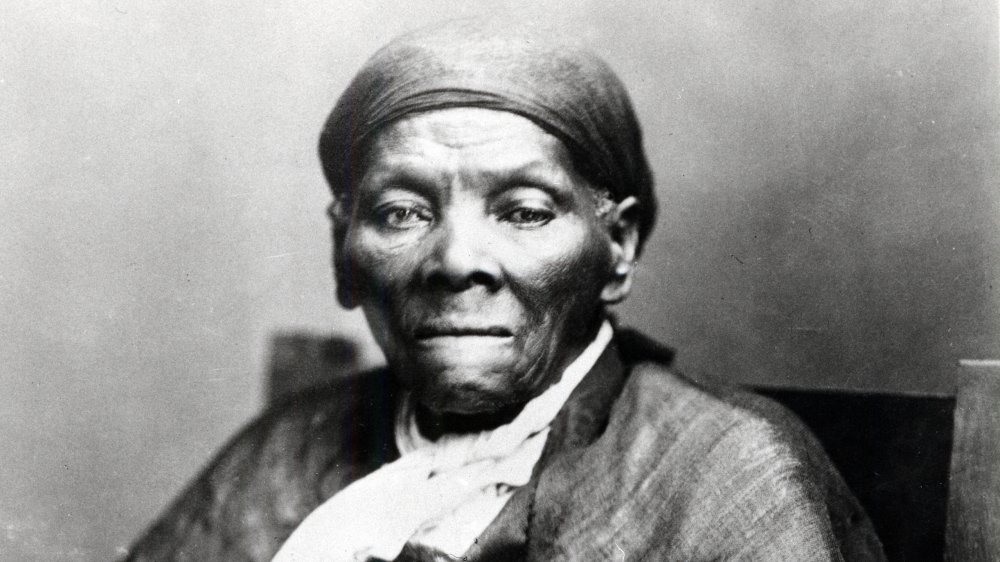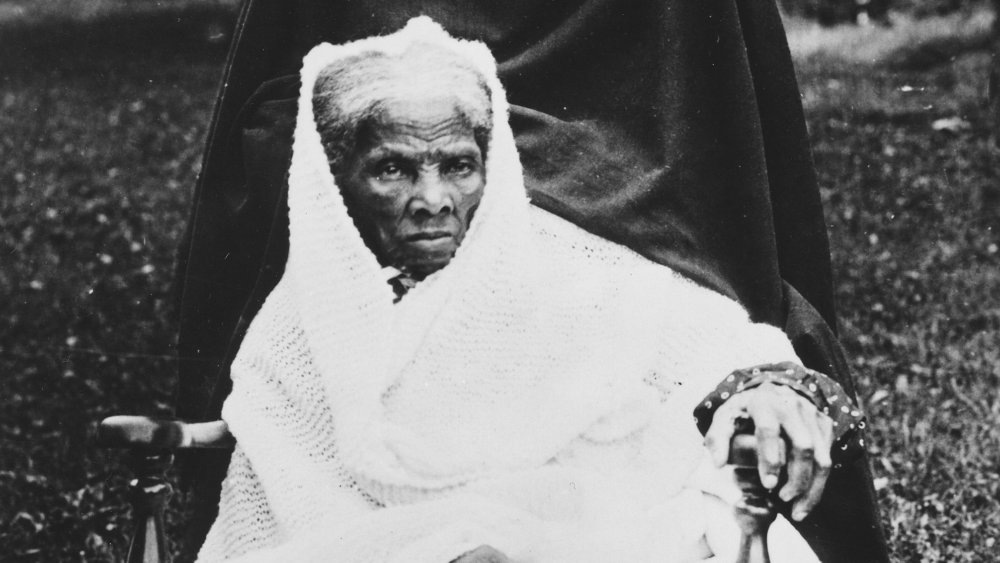The Truth About Harriet Tubman's Connection To Canada
Harriet Tubman is a symbol of American strength and the fight against oppression. She helped lead more than 70 men, women, and children out of slavery to secure their freedom through the Underground Railroad. She was a Union spy, an activist, a suffragette, and later in life devoted herself to the care of others. While Tubman has come to symbolize much of what Americans should aspire to, she also boasts connections to the Great White North. Tubman lived in Canada from 1851-1861, bringing with her many of the formerly enslaved people she saved, to live a free life. In those times, Canada had already outlawed slavery and provided shelter and work for many escaping the United States.
Tubman was born a slave in Maryland. Her owner had attempted to sell her, which would've prompted her family to break apart. She tried to convince her husband to join her in escaping to the North, but he refused. In 1849, Tubman and two of her brothers successfully escaped Maryland and settled in Philadelphia, explained the Ontario Educational Communications Authority.
Though she was free in Philadelphia, it was becoming increasingly difficult for escaped slaves after the government passed the Fugitive Slave Act of 1850. According to History, the Fugitive Slave Act provided harsh punishments for anyone interfering with the capture of runaways. By this time, Tubman was helping family members escape slavery. That's when Tubman and other freedom fighters began looking toward Canada as a refuge for escaped slaves.
Living in the Great White North
Tubman changed her route in the Underground Railroad, hoping instead to end up in Ontario. She moved to St. Catharines, West Canada (now Ontario) in December 1851. She arrived there with 11 other refugees, some of whom may have stopped at Frederick Douglass's house before reaching the border.
According to the Canadian Encyclopedia, Tubman rented a house on St. Catharine's North street and found a job. The town already had a small Black community that was rapidly growing as more people sought freedom. Many members of Tubman's family moved to St. Catharines with her.
Though she frequently left to rescue more slaves and bring them to freedom up north, Tubman used her St. Catharines house as a sort of headquarters. She regularly opened her doors for newly arrived refugees, offering food, clothing, and shelter. She also took in orphaned children. Tubman established the Fugitive Aid Society of St. Catharines with her brother William Henry in 1861.
The Black community in St. Catharines grew, thanks in large part to the work of Tubman and others on the Underground Railroad. By the mid-1850s, there were from 500-800 Black residents. Churches were built to offer religious services, and Tubman, a deeply religious woman, regularly attended church at Salem Chapel, which was across from her house. According to its website, the church still stands and offers services (though it's temporarily closed because of the pandemic).
Back to the US
Canada was good to Tubman, but by 1859, she moved her parents back down to the United States. Her parents had trouble with the harsh Canadian winters, so when New York Senator William Seaward offered Tubman a house, she agreed to bring her elderly parents. Tubman moved to Auburn, New York, though she kept her St. Catharines house until 1861, per Harriet Tubman House. The New York house burned down in 1886, but Tubman's second husband rebuilt it.
When the Civil War broke out in 1861, Tubman went to work as a nurse in the Union Army in South Carolina. After the war ended, she returned to Auburn and her parents. In her later years, Tubman established the Harriet Tubman Home for the Elderly and donated her Auburn house to the church so it could continue the home for the elderly. Tubman stayed in the home herself until her death in 1913.
Tubman is rightfully celebrated as an icon of freedom in both the United States and Canada. St. Catharines recognizes March 10 as Harriet Tubman Day. In 2005, the Canadian government designated her as a person of national significance. While most Americans think Tubman demonstrates the best attributes of the United States, the gentle Canadians up north know she exemplifies them, too.


